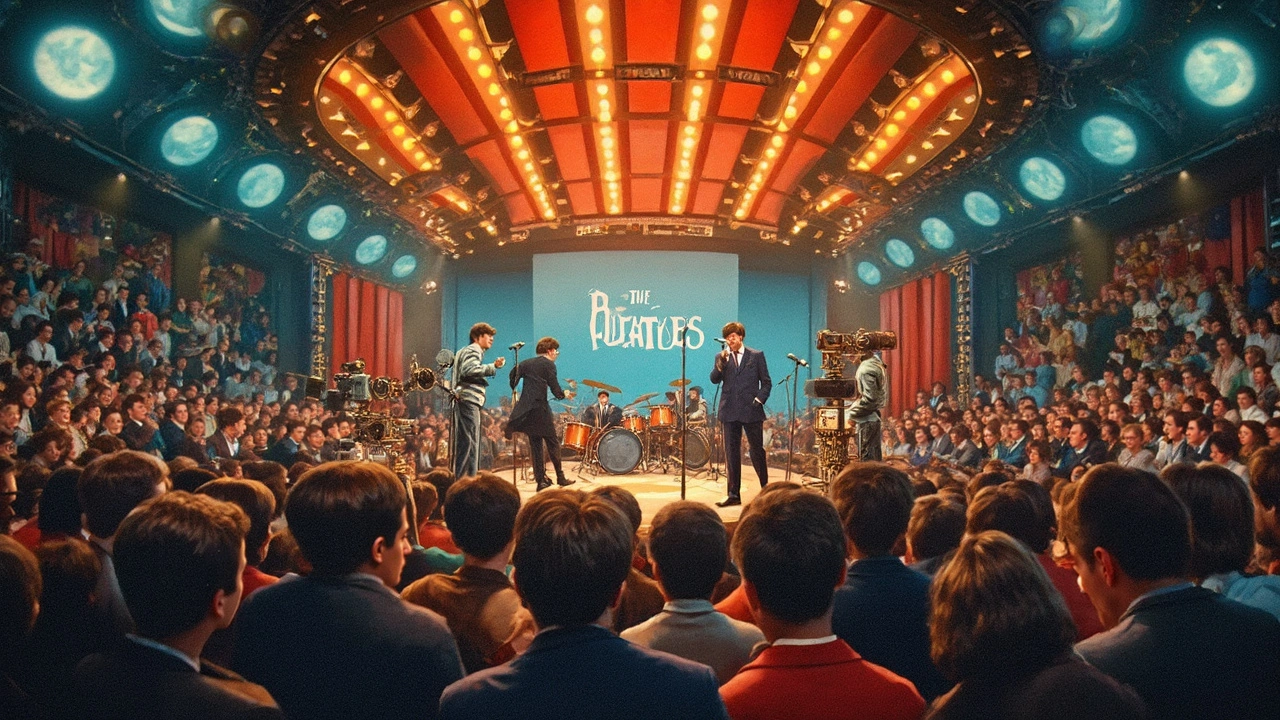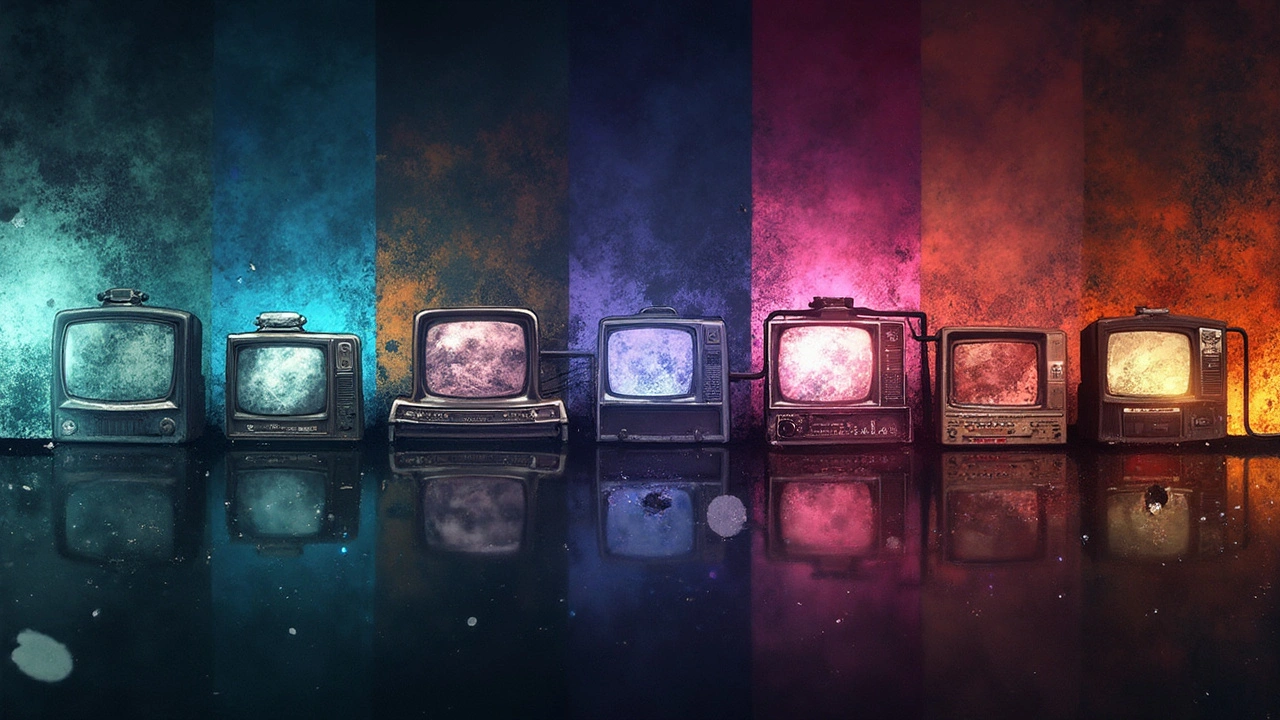
Ever wondered what alternatives there are to the title of the most-watched TV show? In 2025, it’s fascinating to explore how historic moments in television have captivated audiences, sometimes acting like time machines that transport us to defining cultural milestones. Let’s kick things off with one legendary event in TV history: The Beatles’ first U.S. appearance on The Ed Sullivan Show.
The Ed Sullivan Show: The Beatles' First Appearance
This was a night to remember! In 1964, when The Beatles made their U.S. debut on The Ed Sullivan Show, they didn’t just play music; they ignited the British Invasion and changed pop culture. Reaching 45.3% of American households, it was a phenomenon that’s still talked about. How many TV moments today can claim such a dramatic, transformative influence?
Pros
- Cultural milestone
- Introduced influential music to mainstream audiences
- Time capsule of 1960s youth culture
Cons
- Single-episode impact
- Limited to music fans
Conclusion
It’s clear that TV has been more than just entertainment; it’s a mirror reflecting society's shifts and trends. The Beatles’ debut on The Ed Sullivan Show wasn’t merely a popular TV moment—it was a cultural awakening, connecting millions through music. Here's a comparison table summarizing the key alternatives:
| Show | Pros | Cons |
|---|---|---|
| The Ed Sullivan Show: The Beatles' First Appearance | Cultural milestone, introduced influential music, 1960s culture | Single-episode impact, limited audience |
By understanding these pivotal TV moments, we appreciate the medium's ability to shape and reflect global narratives.

The Ed Sullivan Show: The Beatles' First Appearance
When The Beatles hit the stage on The Ed Sullivan Show on February 9, 1964, it wasn't just another TV performance. It was a landmark moment, ushering in the era of the British Invasion. This show captivated a staggering 73 million Americans, about 34% of the population! People were glued to their screens, eager to see this British band that seemed to be taking over the world.
The energy was electric. As the curtain lifted, the crowd screamed, and The Beatles launched into "All My Loving," setting off a cultural phenomenon. Looking at old footage now, it's like opening a time capsule from the 1960s.
“I want to hold your hand wasn’t just a song; it was a movement,” commented John Lennon later in an interview, capturing the essence of those days.
The Night That Changed Everything
What made this night unforgettable? For starters, it was The Beatles' first live TV appearance in America. The band's charm and catchy tunes smashed through language barriers, making them universally adored.
Beyond the music, the event symbolized the start of a new era in pop culture. Teenagers across the U.S. felt united, sharing a musical revolution. The British Invasion wasn't just about music; it also influenced fashion, hairstyles, and even language.
Pros and Cons of This Iconic Moment
While the show marked a cultural milestone, it wasn't without its limitations. It was primarily a one-time event, appealing mostly to music fans. Still, its influence is undeniable.
- Pros: Cultural milestone, introduced influential music to mainstream audiences, a snapshot of 1960s youth culture
- Cons: Single-episode impact, limited to music fans
This appearance wasn't just watched; it was felt across continents. Even today, The Beatles' influence resonates in global pop culture.
Conclusion
Wrapping up our dive into TV milestones, the influence of iconic broadcasts like The Ed Sullivan Show with The Beatles can't be overstated. These moments aren't just bits of televised entertainment; they are cultural landmarks that redefined how audiences interact with media. Let's face it, these shows laid down the path for how entertainment has evolved.
In today's digital age, where platforms like streaming services and social media dominate, it's easy to forget just how impactful broadcast TV has been. Take the 1964 Ed Sullivan moment; it didn’t just cater to fans of music but introduced groundbreaking cultural shifts that resonated globally. This single episode acted like a catalyst for the British Invasion, pushing influential music into the mainstream and forever altering the landscape of pop culture.
The Impact and The Future
So, what's the takeaway here? TV shows back then weren't just filling in airspace, they were framing societal conversations. The Beatles' appearance not only entertained but also provided a window into the youth culture that was shaping the 1960s, offering a time capsule for future generations. As we move further into 2025, we might ask ourselves: What current shows will stand this test of time?
| Show | Pros | Cons |
|---|---|---|
| The Ed Sullivan Show: The Beatles' First Appearance | Cultural milestone, introduced influential music, 1960s culture | Single-episode impact, limited audience |
Ultimately, these aren't mere TV shows; they're electric moments that shaped history. They remind us of the power of media to influence, entertain, and yes, occasionally, to change the world. So next time you tune into a show, think about how it might be remembered decades from now. You never know when you're watching the next big thing!